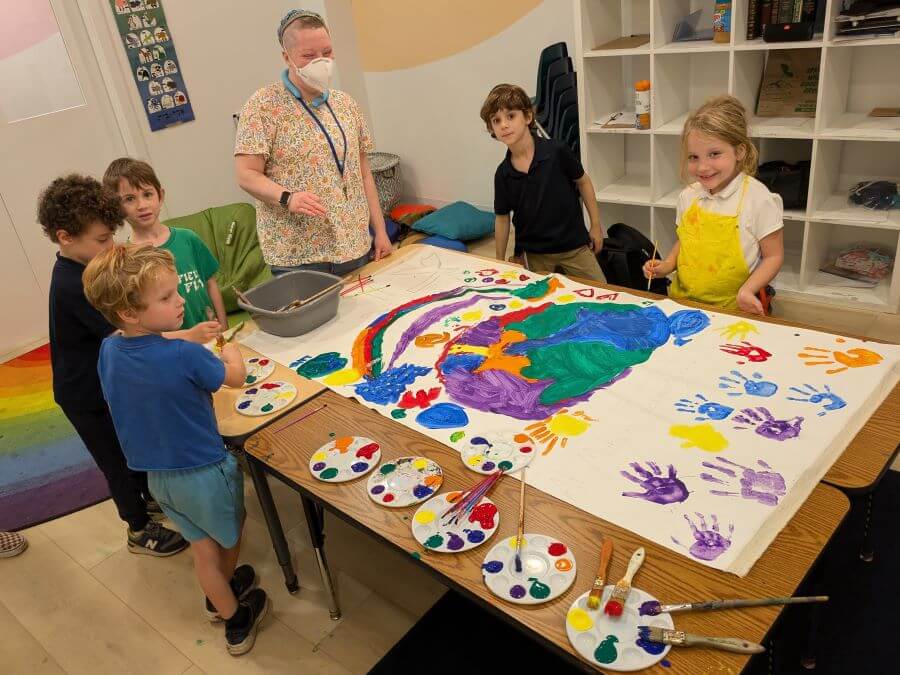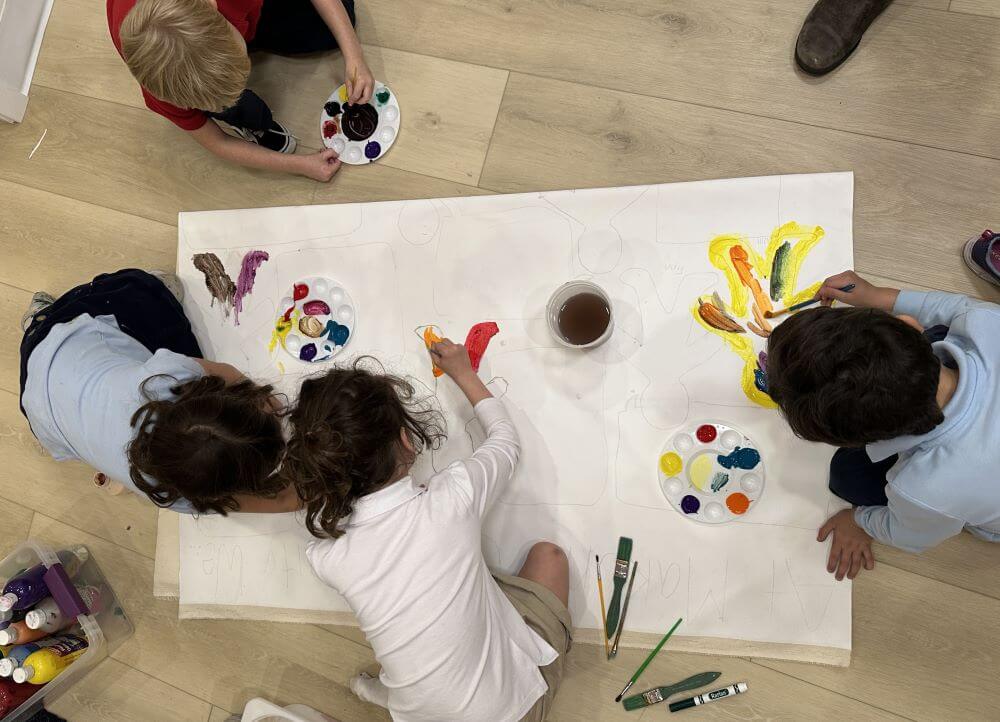
Drumroll please! I proudly present to you, the Makom Community Brit (two-way promise) for the 24-25 school year. These are the promises or community agreements we’re making to each other in order to help everyone at Makom feel safe, loved, and ready to learn.
At Makom Community we…
Help people when they want it.
Listen to each other.
Respect each other, our belongings, and our space.
Are considerate of each other’s thoughts, feelings, and needs.
Advocate and care for ourselves.
Work together to solve problems.
Treat others the way they want to be treated.
Are welcoming so that we can all be authentic.
Forgive each other and offer multiple chances.
Are kind.

So that’s our brit, but how did we get there? Every day throughout the first curriculum unit of the year, we asked our learners some version of the question, “How can we apply this text at Makom Community? What ideas can we take from it to use in how we treat each other?” We want our learners to see themselves as part of a chain of interpreters of Jewish wisdom, and to see Jewish wisdom as something that matters to them. That’s why we learn it! Because it matters!
When the Garinim, Shorashim, and Nitzanim (K-4th graders) explored a text about ushpizin, the special guests Jewish people invite into our sukkot to celebrate the holiday with us, we played around with different ways of welcoming each other and strategies for helping everyone here feel included. And then, “we are welcoming” went onto a brit brainstorm list.

When those same kiddos heard over and over again the emphasis in Jewish text on supporting and taking care of vulnerable people in our communities—the poor, the widow, the orphan, the stranger—we collected food to donate to the nearby pantry to help care for the vulnerable in our community. And then, “Help people” went onto a brit brainstorm list.
When the Anafim (5th-7th graders) unpacked the different mourning customs and avenues for grieving utilized by Yaakov’s sons after his death, we considered what they might have been feeling, what they needed, and how those strategies addressed those feelings and needs. And then “we are considerate of each other’s thoughts, feelings, and needs” went onto a brit brainstorm.

In the second to last week of the unit, two representatives from each kvutzah (age group) joined Gaby in the gathering space, equipped with their kvutzah’s brit brainstorm list. We spent about half an hour sharing our ideas, finding similarities and consolidating, finding differences and compromising. One 3rd grader posited that a whole lot of ideas could be housed under the umbrella of being kind. Another 3rd grader suggested the guideline that every brit item should be applicable to everyone at all parts of the day. A 7th grader explained the concept of authenticity to a kindergartener. Once everyone was in agreement about the language and content, we achieved our finalized list!
Then we got to share it with all of you! Last Friday, we had the privilege of enjoying Shabbat dinner with many of our families. We learned some of the text together that the kiddos explored earlier in the unit. Kiddos showed their parents the designs they created for their classroom’s display of the brit. Each cohort of learners painted a mural for their classroom that was unique to their interpretation and visualization of the final brit list. The masterpieces that resulted from this intentional process of text analysis, application of text, and collaborative deliberation are a creative labor of love that we are proud to stand by as a community for the year.

